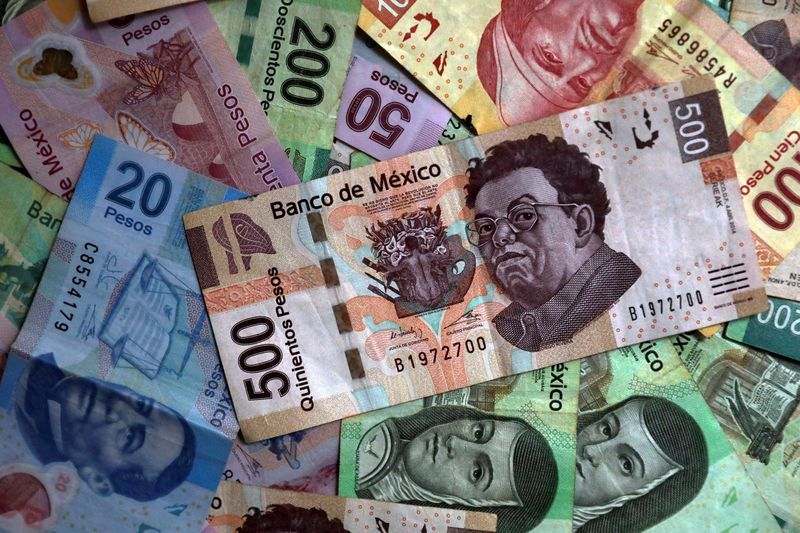By Noe Torres
MEXICO CITY (Reuters) – Mexico’s peso currency flexed its muscle on Monday to reach its highest value against the U.S. dollar in seven years, following nearly two years of interest rate hikes aimed at taming inflation that has seen consumer prices edge down.
Some analysts chalk up the peso’s latest gains, however, as mostly the flip side of a weakening greenback.
The peso gained 0.95% on Monday to trade at 17.42 pesos per dollar, its strongest level since May 2016.
Over the last few years, the Mexican currency has mostly hovered around 20 pesos per dollar, but over the past year it holds the distinction of the currency that has gained the most against the U.S. dollar, or up nearly 11%.
President Andres Manuel Lopez Obrador repeatedly touts the peso’s strength as evidence of sound macroeconomic policies, especially his administration’s budget austerity and pledge to avoid taking on new debt.
But Franklin Templeton portfolio manager Luis Gonzali cited other factors as being behind the peso’s latest surge, including the sliding value of the greenback, most recently on fears of a potential default if U.S. lawmakers do not raise the country’s debt limit in order to cover already-approved spending.
“A big part of (the peso’s strength) is the dollar’s weakness,” he said, adding that the Mexican economy further benefits from growing flows of fixed investments into the country.
But Mexico City-based Gonzali also acknowledged Mexico’s healthier finances, relative to other emerging markets where currencies have not benefited as much as the peso due in part to more public expenditures, higher debt or looser monetary policies.
“Mexico has shown itself to be the least ugly person at the party,” quipped Gonzali, helping it attract more dance partners.
On Thursday, the Bank of Mexico is seen maintaining its benchmark interest rate at 11.25%, halting a cycle of hikes that began in June 2021, according to a Reuters poll of analysts.
Read the full article here




